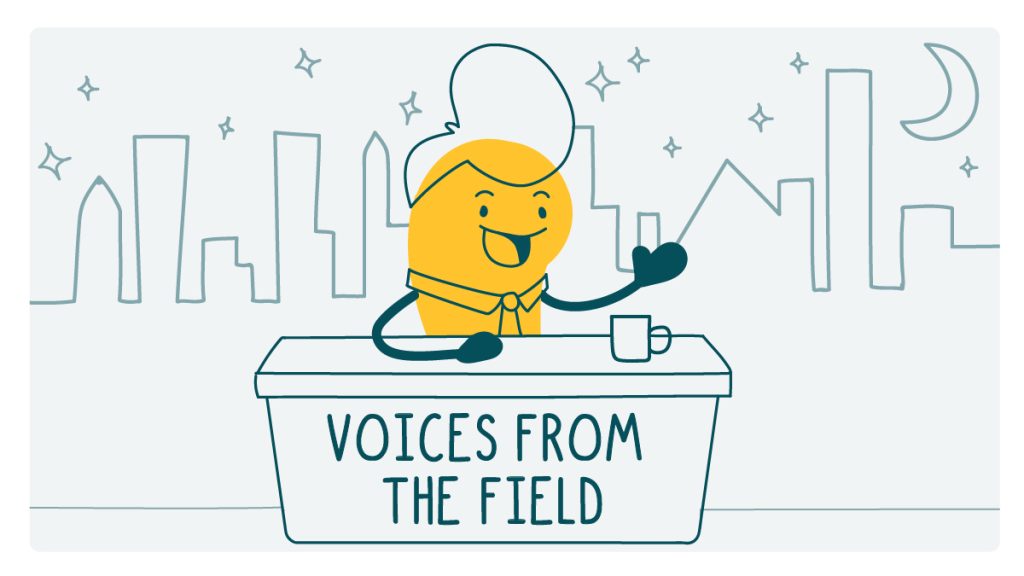
This week, we’re taking you back to school — or rather, to The University of Texas at Austin (UT Austin) for a chat with Dr. Mike Mackert. Mike is the director of the Center for Health Communication at UT Austin, where he trains students from a variety of health-related fields in how to be effective communicators. We got to pick his brain on the trends he’s seeing among future health communicators — and what we all can learn from them.
In recent years, the number of students who want to take Mike’s health communication courses has surged. Perhaps more surprisingly, most students who enroll aren’t studying a comms-related field — Mike notes that most of his students are preparing for a career in medicine, public health, or social work. “COVID was this fast-moving, complex, hard-to-crack health comm challenge. It led a lot of students to realize what health communicators have known all along — that the way we talk about health issues matters.”
In Mike’s class, students learn the foundations of successful communication. They also learn to embrace a new way of thinking about how to motivate people to change their (health) behavior. “Many students start the class wanting to ‘educate’ people into doing the right thing,” Mike says. If COVID has taught us anything, it’s that this approach has limitations. “In my course, I try to help students understand what actually motivates behavior change. You have to know your audience, meet them where they are, and understand the role of theory and evidence.” (For a refresher on health comm theories, check out our Useful Theory series!)
Another important skill Mike tries to teach his students is a willingness to critically examine their own ideas — and to pivot if the data ends up pointing in another direction. “It’s important for them to learn to be okay with being wrong and to not get too attached to an idea,” Mike says. “Students might come up with ideas they think are really great — but when we test them with the intended audience, we might find they don’t land as well as we thought.” In other words: he’s teaching students that following the evidence — and the audience’s lead — helps them do better work.
We asked Mike if he’s noticed any trends in how his students approach health comm challenges. He notes that today’s students seem to be much quicker to embrace the idea of audience segmentation — focusing communications on a specific, narrow subset of your audience. “Students really seem to drive a focus on hyper-local, hyper-targeted communication,” Mike says. “They’re willing to accept that doing a great job at reaching one specific audience is often more impactful than trying to reach everyone.”
In his class, students get the opportunity to try out their ideas in real-life scenarios. For example, students designed a campaign to educate their peers about overdose prevention and promote Narcan (a medicine to reverse opioid overdoses) on campus — and implement stages of the campaign over time, from raising awareness to addressing students’ concerns and barriers. Teaching tomorrow’s health professionals about the power of audience-focused messaging — what’s not to ❤️ about that?
But Mike and his team at the Center for Health Communication don’t stop at educating students. To bring their content to a broader professional audience, they’ve created the Health Communication Training Series — a collection of (mostly) free, snack-sized courses on a variety of health-related communication topics. The best part? These courses are open to anyone! And for those looking to take a deeper dive into the health comm issues of the day and network with other like-minded folks, the Center hosts the Health Communication Leadership Institute, a yearly in-person workshop. “This year’s workshop will include a program focused on both leadership development and health communication best practices,” Mike says.
The bottom line: Clear, actionable, and effective health messages are more important than ever. The good news: Institutions like UT Austin’s Center for Health Communication are educating tomorrow’s (and today’s!) health communicators to be ready to take on any challenge!
Copy/paste to share on social (and tag us!):This week, CommunicateHealth sat down with Dr. Mike Mackert from @UTAustin’s Center for Health Communication to chat about educating tomorrow’s health communicators. Check out this conversation: https://communicatehealth.com/wehearthealthliteracy/voices-from-the-field-mike-mackert-ut-austin/ #HealthLiteracy #HealthComm
Browse recent posts